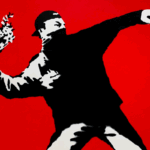Music has the power to unite, inspire, and heal. But for some artists, their time in the spotlight is tragically cut short—leaving fans wondering what could have been. Whether due to untimely deaths, personal struggles, or sudden disappearances from the public eye, these artists left a lasting impact despite careers that ended far too soon. Here are 17 music artists whose careers were over before their full potential could be realized.
1. Amy Winehouse (1983–2011)
Amy Winehouse’s voice was unlike any other—soulful, jazzy, and raw. Her 2006 album Back to Black won five Grammy Awards and showcased her immense talent. But her struggles with addiction and mental health were widely publicized, and in 2011, she tragically passed away at just 27. The music world lost a true original whose potential was only beginning to unfold.
2. Kurt Cobain (1967–1994)
As the frontman of Nirvana, Kurt Cobain redefined alternative rock in the early ’90s. His band’s success with Nevermind propelled grunge into the mainstream. But Cobain’s discomfort with fame, coupled with mental health and addiction issues, led to his death by suicide at 27. His passing cemented his legacy but left fans wondering about the music he might have continued to create.
3. Selena Quintanilla-Pérez (1971–1995)
Known as the “Queen of Tejano music,” Selena was a rising star when her life was tragically cut short at age 23. Her crossover potential into the English-language market was enormous, with her posthumously released album Dreaming of You becoming a massive success. She remains an icon in Latin music and pop culture.
4. Jeff Buckley (1966–1997)
Jeff Buckley had one of the most ethereal voices in rock. His only completed studio album, Grace (1994), received critical acclaim. Tragically, he drowned in 1997 at the age of 30. Many believe he was on the verge of creating some of the most profound music of his generation.
5. Aaliyah (1979–2001)
Aaliyah was a trailblazer in R&B and hip-hop, known for her smooth voice, mature sound, and cutting-edge style. Her death in a plane crash at age 22 cut short a career that was just entering its prime. With successful albums and a burgeoning film career, Aaliyah’s legacy continues to influence artists today.
6. Tupac Shakur (1971–1996)
Tupac wasn’t just a rapper—he was a poet, activist, and visionary. He released several critically acclaimed albums and used his platform to speak on systemic racism and inequality. He was fatally shot in a drive-by shooting in Las Vegas at 25, sparking decades of speculation and leaving behind a trove of unreleased material.
7. The Notorious B.I.G. (1972–1997)
Christopher Wallace, aka Biggie Smalls, brought storytelling to hip-hop with unmatched charisma and lyrical genius. His 1994 debut Ready to Die is considered one of the greatest rap albums of all time. He was murdered in a drive-by shooting in Los Angeles at just 24—just as his star was reaching its zenith.
8. Janis Joplin (1943–1970)
Janis Joplin’s voice was raw, powerful, and deeply emotional. She became a symbol of the counterculture movement of the 1960s. But her battles with addiction led to her death from a heroin overdose at age 27. Her brief but impactful career helped pave the way for women in rock.
9. Jimi Hendrix (1942–1970)
Jimi Hendrix revolutionized the electric guitar and is widely regarded as one of the greatest musicians in history. His experimentation with sound and stage presence set a new bar for rock music. He died at 27 under mysterious circumstances, leaving behind a brief but influential discography.
10. Jim Morrison (1943–1971)
The enigmatic frontman of The Doors, Jim Morrison combined poetic lyrics with psychedelic rock. His death at 27 in Paris added to his mythic status, but fans are left wondering how his art might have evolved had he lived longer.
11. Mac Miller (1992–2018)
Mac Miller started as a teenage rap prodigy and matured into a thoughtful, genre-blending artist. His final album during his lifetime, Swimming, displayed emotional depth and artistic growth. He died of an accidental overdose at 26, just as his career was reaching new heights.
12. XXXTentacion (1998–2018)
A controversial yet influential figure, XXXTentacion was known for blending emo, punk, and hip-hop in groundbreaking ways. Despite legal troubles and a polarizing public image, his music resonated with millions. He was shot and killed at age 20, leaving a complicated legacy and unrealized potential.
13. Avicii (1989–2018)
Swedish DJ and producer Avicii, born Tim Bergling, was a pioneer in bringing electronic dance music (EDM) to mainstream audiences. Tracks like “Levels” and “Wake Me Up” became global hits. He retired from touring due to health issues and died by suicide at 28. His death sparked important conversations about mental health in the music industry.
14. Elliott Smith (1969–2003)
Elliott Smith’s haunting melodies and introspective lyrics earned him a devoted fanbase and an Oscar nomination. His death at age 34, ruled as possible suicide, left the indie world mourning one of its most poignant voices.
15. Lisa “Left Eye” Lopes (1971–2002)
As one-third of TLC, Left Eye brought fire and personality to one of the most successful girl groups of all time. She was killed in a car crash in Honduras at age 30 while filming a documentary. TLC’s influence on pop and R&B is undeniable, and Left Eye’s creativity was irreplaceable.
16. Lil Peep (1996–2017)
Lil Peep fused emo, punk, and hip-hop to create a unique sound that spoke to a disenchanted youth. His death from a fentanyl-laced Xanax overdose at age 21 cut short a career that was breaking musical boundaries and redefining genre lines.
17. Ritchie Valens (1941–1959)
Ritchie Valens was just 17 when he died in a plane crash that also killed Buddy Holly and The Big Bopper—”The Day the Music Died.” Despite his short career, hits like “La Bamba” made him a trailblazer for Latino musicians in rock and roll.



GIPHY App Key not set. Please check settings